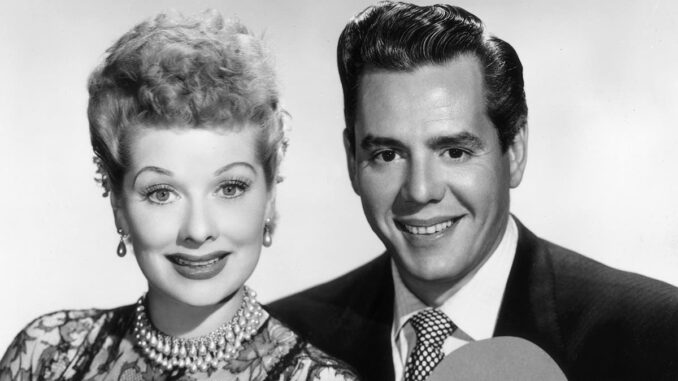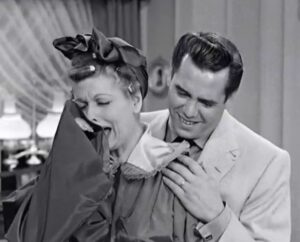
The Irresponsible Product Placement in ‘I Love Lucy’ That Raised Eyebrows
“I Love Lucy” is one of the most beloved TV shows of all time. From Lucille Ball’s impeccable comedic timing to Desi Arnaz’s charming presence, the show set a gold standard for sitcoms. But even legends stumble, and “I Love Lucy” wasn’t immune to controversy. One particular instance of product placement left many viewers questioning the show’s judgment.
Why Product Placement Was a Big Deal in Classic TV
In the early days of television, product placement was a common way for networks to offset production costs. Back then, brands were integrated seamlessly—or sometimes not so seamlessly—into the plotlines of popular shows. While this practice wasn’t new, it often came with ethical dilemmas, especially when it involved questionable products.
What Was the Product in Question?
During one episode of “I Love Lucy,” the show prominently featured a brand of cigarettes. Yes, you read that right—cigarettes. In a scene that has since become infamous, Lucy and Ricky light up while casually discussing their day. The brand wasn’t just a prop; it was deliberately mentioned, ensuring viewers knew exactly what they were smoking.

The Cultural Norms of the 1950s
To understand why this product placement raised eyebrows, we need to step back in time. In the 1950s, smoking was not only socially acceptable—it was glamorized. Advertisements painted cigarettes as symbols of sophistication and relaxation. However, by today’s standards, promoting cigarettes on a family-friendly sitcom feels jarring.
The Episode That Crossed the Line
The specific episode featuring this product placement didn’t shy away from glorifying the act of smoking. Lucy, known for her lovable antics, held a cigarette in one hand while cracking jokes. Ricky, equally nonchalant, joined her. The scene normalized smoking in a way that feels irresponsible in hindsight, especially considering the show’s influence on its audience.
The Role of Sponsors in the Show
At the time, cigarette companies were major sponsors of television programs. In fact, the brand featured in “I Love Lucy” was a financial backer of the show. This relationship explains why the product was highlighted so prominently. However, it also blurs the line between storytelling and advertising.
Did the Show Face Backlash?
Surprisingly, the episode didn’t spark much controversy when it first aired. Smoking was so ingrained in daily life that most viewers likely didn’t think twice about the scene. But as awareness about the health risks of smoking grew, this moment from “I Love Lucy” began to age poorly.
How the Scene Aged Over Time
Fast-forward to today, and the inclusion of cigarettes as a product placement feels tone-deaf. Modern audiences are more aware of the dangers of smoking, and the idea of promoting it on a sitcom feels irresponsible. It’s a stark reminder of how societal norms evolve over time.
The Impact on Younger Viewers
One of the biggest concerns about this product placement is its potential influence on young viewers. “I Love Lucy” was a family show, and many children likely watched it alongside their parents. Seeing their favorite characters smoke could have made the habit seem appealing or even glamorous.
What Makes This Product Placement Different?
Not all product placements are created equal. Featuring everyday items like coffee or cars is one thing, but promoting a product with well-documented health risks is another. This is where “I Love Lucy” crossed the line, using its platform to advertise something harmful.
Were the Actors Comfortable With This?
It’s worth noting that Lucille Ball and Desi Arnaz were both smokers in real life. While this doesn’t excuse the product placement, it does provide some context. Smoking was part of their daily lives, which likely made the on-screen depiction feel natural to them.
How Product Placement Has Changed Over the Years
The ethics of product placement have evolved significantly since the 1950s. Today, there are stricter guidelines about what can and can’t be promoted on television, especially in shows aimed at younger audiences. This shift reflects a broader cultural awareness of the impact media has on viewers.
The Legacy of ‘I Love Lucy’ Despite the Misstep
Despite this controversial moment, “I Love Lucy” remains a beloved classic. The show broke barriers, redefined comedy, and created unforgettable characters. However, this instance of irresponsible product placement serves as a reminder that even the best shows aren’t perfect.
Lessons Learned From This Controversy
This episode teaches us the importance of considering the ethical implications of product placement. While advertising is a necessary part of television, it shouldn’t come at the expense of promoting harmful behaviors.
Modern-Day Parallels
Even today, debates about ethical advertising in entertainment continue. Whether it’s sugary snacks in kids’ shows or vaping products in teen dramas, the line between promotion and irresponsibility remains a hot topic.
Could This Happen Again?
Given today’s stricter regulations, it’s unlikely that a show like “I Love Lucy” would feature such blatant product placement for a harmful product. However, the lessons from this controversy still apply: creators must think carefully about the messages they send to their audiences.
Conclusion
“I Love Lucy” will always hold a special place in television history, but its controversial product placement for cigarettes serves as a cautionary tale. It’s a reminder of how much influence media can have and why it’s essential to use that power responsibly.
FAQs
1. Why did ‘I Love Lucy’ feature cigarette product placement?
The show’s sponsor was a cigarette company, which led to the product being prominently featured in an episode.
2. Was smoking common in 1950s TV shows?
Yes, smoking was heavily glamorized in the 1950s, and it was common to see it depicted in movies and TV shows.
3. Did Lucille Ball and Desi Arnaz smoke in real life?
Yes, both were smokers off-screen, which may have influenced their comfort with the product placement.
4. Has this episode impacted the show’s legacy?
While the episode is a blemish on the show’s otherwise stellar reputation, it hasn’t significantly tarnished its legacy.
5. Are there any regulations against harmful product placement today?
Yes, modern regulations strictly limit the promotion of harmful products, especially in family-friendly content.